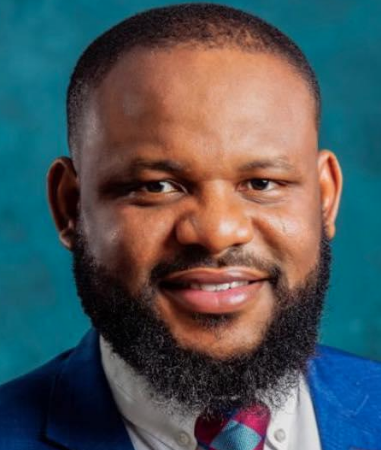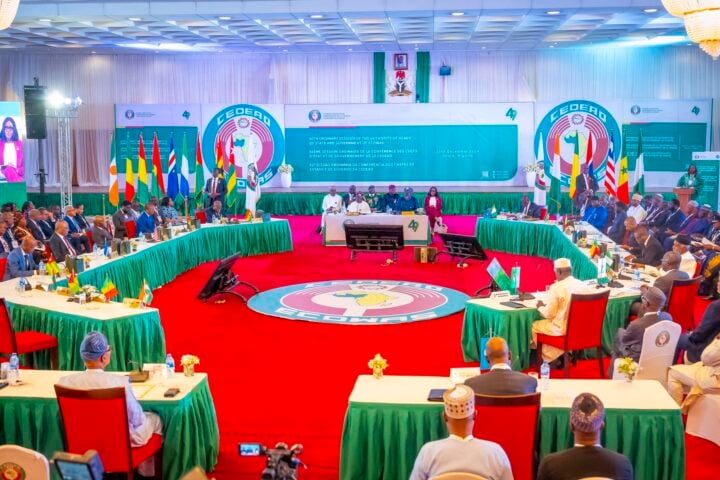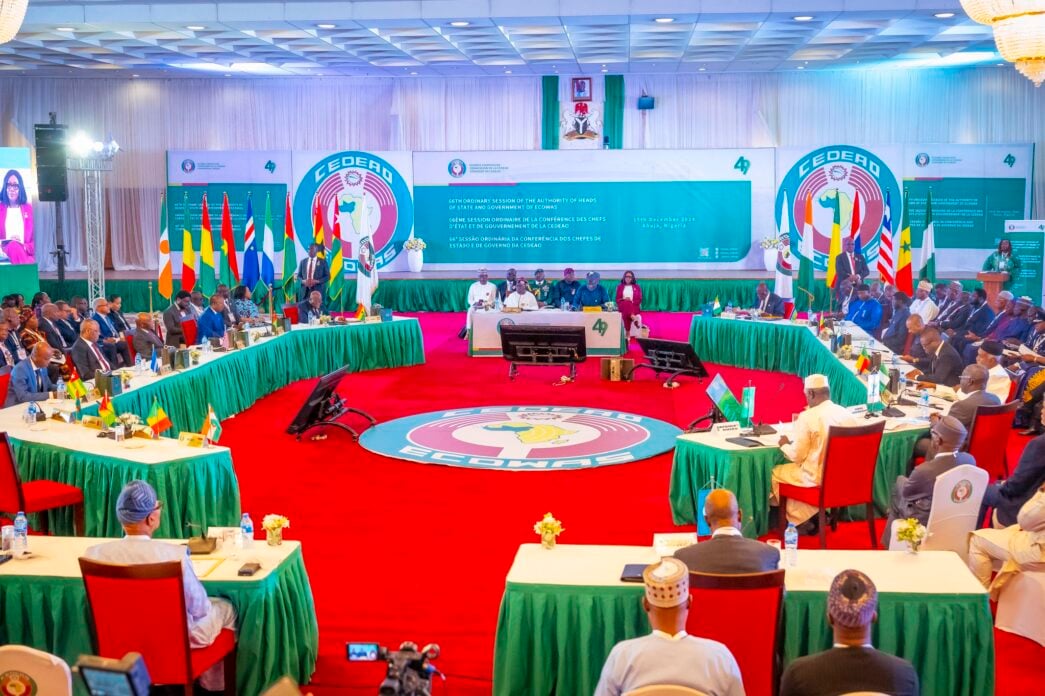ECOWAS meeting in Abuja on December 15, 2024 | File photo
On 15 December 2024, the Authority of Heads of State and Government of the Economic Community of West African States (ECOWAS), meeting in Abuja, Nigeria, approved the Statute of the “Special Tribunal for The Gambia,” a hybrid court with Gambian and international personnel, and a mandate to prosecute crimes against humanity, torture and other serious crimes committed during the Jammeh regime. This marks a potentially groundbreaking development in the pursuit of justice and accountability for human rights violations within the region. This initiative raises important questions about the role of regional mechanisms in complementing international and national justice systems, particularly in addressing the legacy of authoritarian rule and systemic abuses.
1. Justice in transition
The Gambia’s recent history is marred by the 22-year rule of Yahya Jammeh, during which widespread human rights violations—including extrajudicial killings, torture, enforced disappearances, and sexual violence—were reportedly perpetrated. Following Jammeh’s ouster in 2017, the Truth, Reconciliation, and Reparations Commission (TRRC) was established to uncover the truth about these violations and recommend measures for accountability and reparations.
The TRRC hearings, which garnered significant national and international attention, provided a platform for victims and witnesses to share their experiences, leading to a comprehensive record of abuses. Its recommendations for prosecution were hailed as a critical step toward justice. However, political inertia and systemic weaknesses within The Gambia’s judiciary have hindered progress, creating a vacuum in accountability efforts. The ECOWAS-backed court emerges as a crucial mechanism to fill this void, offering an opportunity to transform the TRRC’s findings into tangible judicial outcomes.
Advertisement
2. Regional complementarity in action
Regional complementarity refers to the interplay between international, regional, and national justice mechanisms, where regional bodies step in to address accountability gaps at the national level while reinforcing international norms. The ECOWAS-backed special court represents a practical application of this principle.
This court reflects the growing recognition of Africa’s capacity to develop and implement its own solutions to justice and accountability challenges. By complementing international efforts, such as those by the International Criminal Court (ICC), and addressing jurisdictional gaps in The Gambia’s domestic system, the court underscores the value of regional ownership. It also aligns with the African Union’s aspiration for African solutions to African problems, ensuring that justice is pursued in a way that resonates with local cultural and social contexts.
Advertisement
3. Key strengths of the ECOWAS initiative
a. Contextual understanding: As a regional organization, ECOWAS is well-placed to understand the socio-political dynamics of The Gambia and its neighbors, fostering a sense of ownership and legitimacy.
The court’s establishment builds on ECOWAS’s prior successes in promoting peace and democracy within the region, such as its role in resolving conflicts in Liberia and Sierra Leone. This legacy lends credibility to ECOWAS as an institution capable of addressing justice and accountability issues. By involving regional actors who share cultural and historical ties with The Gambia, the court has a better chance of earning the trust of local communities.
b. Cost-effective justice: Regional mechanisms often operate at a fraction of the cost of international tribunals, making them more sustainable and accessible. The court’s regional character ensures that its operational costs remain relatively low compared to international tribunals such as the ICC or ad hoc courts like the Special Court for Sierra Leone. This efficiency is particularly important in a region where financial constraints often impede justice initiatives. Additionally, the court’s proximity to the affected communities enhances accessibility, allowing victims and stakeholders to actively engage in the justice process.
Advertisement
c. Capacity building: The court’s operations could strengthen The Gambia’s domestic justice sector through knowledge transfer and training, contributing to long-term institutional reform. Beyond delivering justice, the court has the potential to leave a lasting legacy by building the capacity of The Gambia’s judiciary. Training programs for judges, prosecutors, and investigators involved in the court can bolster domestic systems, enabling them to handle future cases of a similar nature. This dual focus on justice and capacity building ensures that the initiative has both immediate and enduring impacts.
d. Fostering regional solidarity: The ECOWAS-backed court symbolizes collective accountability, reinforcing solidarity among member states to address crimes against humanity. By supporting The Gambia in its quest for justice, ECOWAS sends a strong message that human rights violations will not be tolerated within the region. This initiative could deter potential perpetrators in member states by demonstrating that the regional body is willing to take decisive action. It also fosters cooperation and trust between states, promoting the idea of shared responsibility in upholding justice and human rights.
4. Challenges to address
Despite its promise, the success of the ECOWAS-backed court is not guaranteed. Several possible challenges loom large:
Advertisement
a. Political will: Sustained political commitment from ECOWAS member states, including financial and logistical support, is essential. Securing adequate resources and consistent backing from ECOWAS members remains a significant challenge. The court’s success depends on avoiding political interference and ensuring that member states, particularly those with close ties to The Gambia, do not undermine its work. Past experiences with regional mechanisms, such as delays in enforcing ECOWAS Court of Justice rulings, highlight the importance of sustained political will.
b. Jurisdictional issues: The court must carefully navigate jurisdictional complexities, particularly when prosecuting crimes that transcend national borders.
Advertisement
Crimes committed under Jammeh’s regime may involve actors and victims beyond The Gambia’s borders, requiring the court to coordinate with neighboring states and potentially overlapping international mechanisms. Establishing clear jurisdictional boundaries and fostering cooperation among all stakeholders will be critical to avoid duplication and ensure effective prosecutions.
c. Victim-centered justice: Ensuring meaningful participation of victims and affected communities is critical to the court’s legitimacy and impact. For the court to succeed, it must prioritize the voices and needs of victims. This includes providing psychosocial support, ensuring their safety during the process, and integrating reparations into the broader justice framework. Failure to engage victims meaningfully could undermine the court’s credibility and impact.
Advertisement
d. Public perception and trust: Winning the confidence of victims and the broader public is critical for the court’s legitimacy and success. A perception of bias, inefficiency, or ineffectiveness could undermine the court’s legitimacy. To counter this, the court must prioritize transparency in its operations and communication strategies. It must also ensure that its processes are inclusive, culturally sensitive, and responsive to the needs of affected communities. Failing to address these concerns could diminish the court’s impact and leave victims feeling further marginalized.
5. A regional model for justice?
Advertisement
If successful, the ECOWAS-backed court could serve as a model for other regional initiatives seeking to address impunity in contexts where national systems are weak and international interventions are limited. It represents a bold assertion of regional responsibility in the global justice framework, demonstrating that regional bodies can act as effective intermediaries between local and international mechanisms.
The model could inspire similar initiatives across Africa and beyond, especially in regions where regional organizations like the Southern African Development Community (SADC) or the East African Community (EAC) might address accountability issues. It also reinforces the principle that regional courts are not just stopgaps but legitimate components of the global justice ecosystem, capable of addressing crimes and fostering institutional reform.
Not a conclusion
The establishment of the ECOWAS-backed special criminal court in The Gambia offers a unique opportunity to advance justice and accountability for the victims of Jammeh’s regime. While significant challenges remain, this initiative has the potential to be a landmark achievement in regional complementarity, reaffirming the critical role of regional bodies in promoting human rights and the rule of law in Africa.
As this process unfolds, it will be essential to monitor its implementation, learn from its successes and shortcomings, and advocate for a victim-centered approach that prioritizes truth, accountability, and reparations. The court’s journey will undoubtedly shape the discourse on regional complementarity in international criminal law for years to come. By demonstrating that justice can be pursued regionally, it may pave the way for a more inclusive and effective global justice framework.
Bakare, a Nigerian national, holds a PhD in international criminal law from Leiden University and he is the author of an upcoming book titled ‘Regional Complementarity in International Criminal Law: Making Sense of the Four-Tiered Justice Paradigm’.
Views expressed by contributors are strictly personal and not of TheCable.
Add a comment












